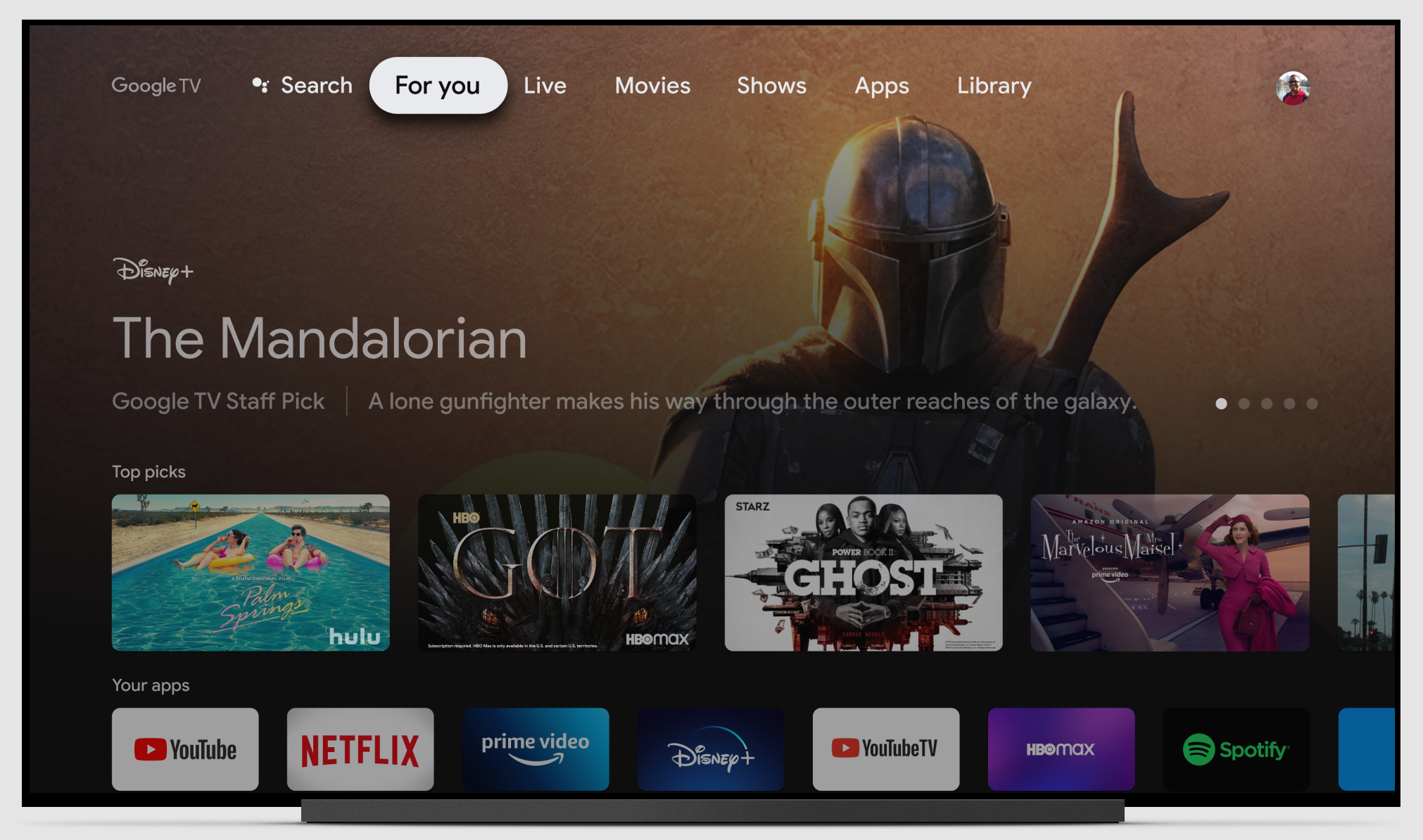Google's new Chromecast with Google TV marks not just a change for Google's hardware lineup to better compete with Roku and Fire TV hardware, it's also the future of Android TV as we know it, though it all gets pretty messy. See, Google TV will also be coming to third-party hardware from companies like Sony starting next year, though Android TV itself will live on — at least until 2022.
It's all very messy, and some of the longer-term details are subject to change and further clarification, but in essence: Google is releasing its own branded customized "experience" or skin called Google TV that runs on top of Android TV, debuting on the new Chromecast with Google TV — loading the new software branding right into the name itself. But this new skin isn't going to be a Google exclusive, like the manufacturer-customized skins on Android phones usually are. Google is also making Google TV available to other manufacturers that want it over the next two years, like Sony. (As an aside, I think it's a little funny to call out Sony as a partner for this big important software change when Sony can't even keep the Android TVs it already has up to date.) After that, all new Android TV devices have to be using this Google TV skin. In short: Google TV is the future of the platform.
But alongside all this, Google will still continue to provide the un-skinned Android TV to other companies until 2022, though it promises to update "eligible" devices to the Google TV experience and details regarding eligibility haven't been revealed yet. That means Google TV and Android TV will have to coexist for at least the next couple of years. Google also plans to bring some Google TV features to existing Android TV devices, further muddying these branded waters.
Announced today, Google TV supports some extra features on top of what's provided by Android TV, like a new Live tab for TV service-type integrations (starting with YouTube TV and expanding to more providers later), plus better and deeper Assistant integrations, as well as a handful of other changes. For more information about Google TV, check out our review of the Chromecast with Google TV.
Google's plans for the transition may sound frustrating, but they make sense. The company can't really control what other manufacturers do, and not all existing devices will have the chops to run Google TV. While they can provide the software to manufacturers for the transition and try to backport features that don't require a deeper OS upgrade, it's partly outside of Google's hands. Nonetheless, it's still bound to be a nightmare when it comes to branding and user expectations.
As part of this change, Google is also rebranding the Play Movies & TV app into the new Google TV app. Ultimately, I'm not sure how that will all plug back into Android TV, but I'm sure it will be the sort of confusing branding mishmash only Google could achieve when folks end up watching Play Store movie rentals via Google TV on their legacy Android TV.

